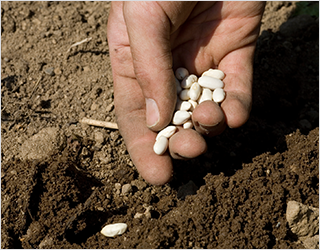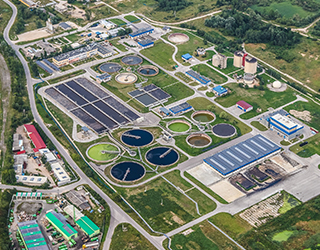Agriculture is facing major challenges resulting from climate change and the scarcity of natural resources. Innovative approaches are needed to increase yields, reduce costs and minimize environmental impact at the same time. This is where smart agriculture comes in, ushering in a new era of sustainability through the use of state-of-the-art technologies.
In the field of smart farming, the Fraunhofer FEP focuses on advanced electron beam and plasma technologies that offer numerous advantages. Our technologies not only help to increase the efficiency of production, but also significantly reduce the environmental impact. The reduction in the use of chemicals and the improved utilization of resources create the basis for a more sustainable future in agriculture.
 Fraunhofer Institute for Electron Beam
Fraunhofer Institute for Electron Beam


